Smoke Pollution
Information and guidance about smoke nuisance
Smoke Nuisance - Garden Fires and Wood Burning Stoves
Garden Bonfires
It is a common misconception that there are specific bylaws that prohibit garden bonfires or specify times they can be lit - there aren't.
However as a local authority we would encourage you wherever possible to dispose of your wastes through the Council's waste collection services, recycling, composting or by disposal at the civic amenity centre in Bittern Way, Boston, Lincolnshire, PE21 7RQ.
Burning wastes can cause localised nuisance and impact on local air quality.
The smoke, smuts, and smell from bonfires are the subject of many complaints to local authorities. Smoke can prevent your neighbours from enjoying their gardens, opening windows or hanging washing out.
Where a neighbour is causing problems by burning waste in their garden, Environmental Health can take action where this amounts to a statutory nuisance. Under the Environmental Protection Act 1990, a statutory nuisance includes "smoke, fumes or gases emitted from premises so as to be prejudicial to health or a nuisance". In practice, to be considered a statutory nuisance, a bonfire would have to be a persistent problem, interfering substantially with your well-being, comfort or enjoyment of your property.
If your neighbours are having a bonfire and you are bothered by smoke, approach them and explain the problem. You might feel awkward, but they may not be aware of the distress they are causing. Hopefully, they will understand and be more considerate in the future. If talking to your neighbours fails, contact Environmental Health.
Wood Burning Stoves
The installation of wood burning stoves in domestic properties is becoming increasingly popular.
The installation of wood burning or multi-fuel stoves is work that is controlled under the Building Regulations. You should ensure that your fitter is appropriately HETAS accredited (Heating Equipment and Testing Approval Scheme) or contact Boston Borough Council's Building Control Section with full details before installing appliances or carrying out work to flues or chimneys. Incorrectly installed stoves and flues can lead to fires or dangerous gases entering the house potentially leading to carbon monoxide poisoning or death. It is therefore in your own interest, as well as your neighbours, to ensure the correct installation.
There are no designated smoke control areas within the Borough of Boston. This means that fuels such as wood and coal can be used so long as the smoke from their combustion does not cause a nuisance to neighbouring properties. Where evidence shows that smoke or fumes are causing significant interference with another person's use and enjoyment of their property we can take action to stop the problem.
The Department for Environment, Food and Rural Affairs has produced guidance for reducing the health and environmental impacts associated with stoves and open fires.
It is important to ensure that your stove is operated correctly and burning the wrong kind of fuel may reduce the efficiency of your stove as well as producing increased smoke. Ensure you follow the manufacturer's instructions for your stove. Wood should be dry or 'seasoned' to reduce smoke and further guidance on choosing wood for your stove is available.
Remember that even if you follow all the advice and guidance given above, if your appliance is still causing a nuisance you may have to stop using it.
Reporting a smoke nuisance
In many cases problems can be resolved informally through discussion with the person responsible for the nuisance.
A formal complaint may cause future difficulties between you and the person responsible. If this approach fails or you do not wish to approach the person responsible then you can contact us for advice or to make a formal complaint.
When making a complaint you will need to provide the following information:
- Your name, address and telephone number - anonymous complaints are not accepted
- The exact address where the problem is coming from
- The type of problem and how it is affecting you
- When and for how long the problem occurs
Your name and address will not be given to the person complained about without your permission, although your identity may be guessed.




